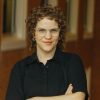From Wednesday, November 12th to Friday, November 14th I attended one of my favorite conferences, the Beyond the Numbers Conference (BTN) hosted by the Research Division of the St. Louis Federal Reserve. Held every other year at the Federal Reserve Bank of St. Louis in St. Louis, MO, this conference is designed for librarians and information professionals who are interested in economic data and information. Not only is the content interesting but the conference itself is free, breakfast and lunch are included (and good!), and you may just run into the person who helps put together the consumer price index or gross domestic product figures. You can see the full conference agenda here. Below are some highlights from some of my favorite sessions:
Pre-Conference
Perhaps the most used and well-loved export from the St. Louis Fed is its Federal Reserve Economic Data (FRED) service. FRED is “an online database consisting of hundreds of thousands of economic data time series from scores of national, international, public, and private sources”. An incredibly powerful resource used by everyone from Economists to students needing economic data, FRED brings together economic data points from a variety of sources in an easy to use format – by which I mean it’s easy to search, analyze, cite, and export and it’s all free (looking at you Bloomberg). In an effort to help more people develop the requisite data literacy needed to effectively and efficiently utilize FRED, the St. Louis Fed Research Division developed two online courses – Data Literacy for Librarians and FRED Data Practitioner – that are free to take and provide the user with digital badges via Credly. The three hour pre-conference offered attendees dedicated time to complete badges and I can now say I’m credentialed in “Acting on Data” and “Saving Graphs and Organizing Data” by the St. Louis Fed. If you are looking to grow your data skills, I think this resource is a great place to start!
Keynote Address – Dr. Isaac Baley, Associate Professor, Universitat Pompeu Fabra
Dr. Isaac Baley’s keynote addressed themes from his new book The Data Economy: Tools and Applications (co-authored with Laura Veldkamp) and dug into what it really means to live in a “data economy,” where value comes less from what we would consider traditional goods and services and more from how well we (or, really, companies) use digitized information to reduce uncertainty and make better predictions. He walked through the many ways firms profit from data – anticipating demand, personalizing recommendations, managing risk, and building serious market power – fueled by a constant feedback loop of data → prediction → transaction → more data. A big theme was that a lot of this value never clearly shows up in traditional numbers like GDP because data is often bartered for “free” services or discounts and bundled into transactions in ways that are hard to measure. Baley also stressed that trustworthy public data is a kind of economic infrastructure: it underpins wage negotiations, policy decisions, and investment, and when people lose confidence in official statistics, they turn to fragmented private data instead, which can increase disagreement and inefficiency. For those of us working with information every day, two of his closing points really resonated: (1) the data economy isn’t just about technology, it’s about the institutions and people who collect, curate, and interpret data and our challenge is to help steward data as a strategic input to economic life, not just a byproduct and (2) if how institutions collect, use, and act on (consumer) data was more transparent, we (consumers) could actually assess how much our data is valued/value.
Session – “Data Detective: Simple Strategies for Smarter Dataset Selection” by Laura Beane, Kennesaw State University
Laura Beane, Data Services Librarian at Kennesaw State University presented a super useful evaluation framework anyone (but especially librarians) can use when it comes to selecting the right dataset for a research project. She framed smart dataset selection around two core questions: transparency (can you tell how this data was created?) and usability (can you actually work with it?). From there, she offered a very practical seven point checklist: (1) start with a clear research question, (2) check the source’s credibility, (3) review metadata and documentation, (4) check for usability early, (5) check for timeliness and updates, (6) understand the data’s limitations, and (7) check for licensing and access. Each of these steps came with clear red flag/ green flag framing which felt especially useful as a way to help our researchers move beyond grabbing whatever data they can find and toward more intentional, ethical, and effective data use.
There is a whole lot more I could dig into from this conference (the use of primary economic sources in creating a picture of people’s lives, the origin of GDP, using AI to assess liaison services) but I’ll just end by saying this is such a fun conference and would encourage anyone with an interest in economic and/or data information literacy to check it out!


5 Comments on ‘Morgan @ Beyond the Numbers Conference’
This sounds like an amazing conference, Morgan! I look forward to benefiting from your increased knowledge of data and need to talk to you about the use of AI to assess liaison services….Thanks for sharing!
This sounds like a really interesting conference, and I would certainly like to learn more about primary economic sources!
Thanks for this interesting and useful report Morgan. Look out Digital Badges!
Wow, I can see why this is your favorite conference! Thanks for sharing, Morgan — I enjoyed hearing about the world of Federal Reserve data. And I’m excited that you got to take a Data Literacy for Librarians workshop 🙂
Fascinating! Thank you for sharing, Morgan!